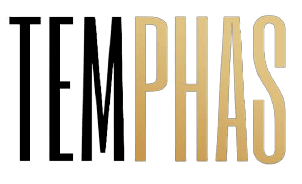What plans does Elon Musk have for Twitter

Elon Musk issued a statement on Monday outlining a small list of platform goals, many of which he has previously floated to his 83 million Twitter followers. He wrote, “Free speech is the bedrock of a functioning democracy, and Twitter is the digital town square where matters vital to the future of humanity are debated,”. “I also want to make Twitter better than ever by enhancing the product with new features, making the algorithms open source to increase trust, defeating the spam bots, and authenticating all humans.”
In a March tweet, Musk described himself as a “free speech absolutist.” “A lot of people are going to be incredibly unhappy with West Coast high tech being the de facto arbiter of free expression,” Musk tweeted three days after President Trump earned a permanent Twitter suspension for his “risk of future inciting of violence” during the Jan. 6 insurgency.
However, misinformation, manipulation, and extremist ideas continue to dominate the web, particularly in the wake of Russia’s invasion of Ukraine. While Musk has stated that hate speech will be prohibited, he has yet to clarify the gray areas, and it appears that more lax content moderation procedures could lead to an increase in the poisonous behavior that Twitter has been attempting to eradicate for years.
Fewer restrictions on speech could hurt Twitter’s economic line: advertisers may be less willing to pay for messages that contain racism, prejudice, or misogyny. Musk will also have to deal with the wants of national governments, each of which has its own view of what constitutes permissible speech. “Zuckerberg and Musk are still functioning at the country level and must, in some ways, placate governments all over the world,” says Jennifer Grygiel, an associate professor of social media at Syracuse University. “There will be a great deal of political maneuvering to be done.”
An edit button
Musk asked his Twitter followers on April 4 to see if they wanted an Edit button, and they overwhelmingly said yes: 73 percent of 4.4 million votes were “yes.” On Twitter, calls for an Edit button have long been heard, while Reddit and Facebook already have Edit capabilities that function effectively for their users.
However, while an edit button would allow users to correct typos, it would also allow unscrupulous actors to tamper with the public record. Trolls could make a commonly accepted statement in order to gain likes and retweets, only to change it later to something horrific. Hackers could gain access to government or corporate accounts and change data.
Open-source algorithms
What individuals see on social media is largely the result of complex algorithms, the components of which are frequently well held Big Tech secrets. Musk wants Twitter to open-source its algorithms, or the decision-making process that determines which tweets are seen to users. At the TED conference, he stated that whether someone’s tweets are “emphasis or de-emphasized, that action should remain obvious.” Many people agree with him in general, particularly in light of the Facebook papers from 2021, which demonstrated how skewed algorithms can have terrible results.
Human authentication and spam bots
On Twitter, Musk described spam bots as the “single most annoying problem.” Bots that advertise crypto-based frauds inundate users’ feeds in an attempt to entice unsuspecting victims.
Twitter already has a rigorous mechanism in place to screen out false accounts: the firm utilizes technologies to detect patterns of automation throughout the registration process. Botmakers, on the other hand, are becoming more devious and smart, allowing many to slip past Twitter’s censors undetected.
Getting rid of advertisements
Musk called for the abolition of all advertisements on Twitter in a now-deleted Tweet, writing, “The power of corporations to dictate policy is greatly enhanced if Twitter depends on advertising money to survive.”
To stay afloat financially, Twitter is nearly entirely reliant on advertisements. The company recorded $1.41 billion in advertising revenue in Q4 2021, out of $1.57 billion in total revenue for the quarter. Twitter Blue, the company’s first consumer subscription plan, was launched in November and costs $3 per month for access to “premium features.”
